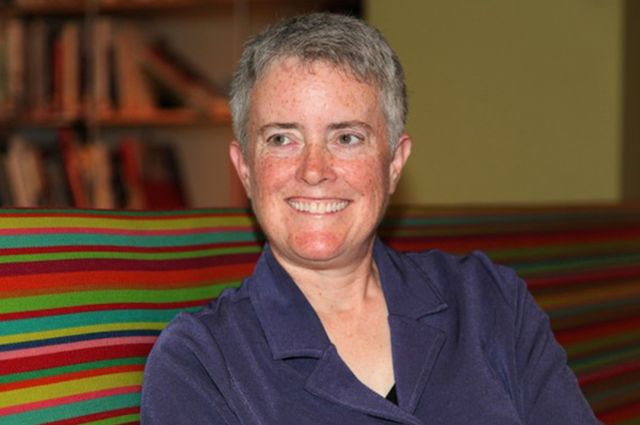M.V. Lee Badgett is a Williams Distinguished Scholar at the Williams Institute at the UCLA School of Law and professor of economics at the University of Massachusetts Amherst. Her policy-related work includes testifying as an expert witness in legislative matters and litigation, analyzing public policies, consulting with regulatory bodies, briefing policymakers and advising businesses. Badgett received a Ph.D. in economics from the UC Berkeley in 1990, and a B.A. in economics from the University of Chicago in 1982. This Q&A originally appeared in the Williams Institute data blog “LGBT Stats.”
Can you tell us a little about how you see LGBT economic data playing a part in policy conversations in the coming year?
I think there are at least two different roles for data in the coming year. First, think about states that haven’t yet enacted policies to protect LGBT people from discrimination in employment, public accommodations or housing, for example. In those places, research and data can make discrimination and inequality visible. Second, in the places that already have strong policies, data has a practical role. We could collect data to see how well those policies are working. Do LGBT people know about them? Do they know what to do if they think they’ve faced discrimination? Is there evidence that employers, landlords, and businesses are obeying the law?
Which public policy debates do you think will benefit the most by available economic data on the LGBT community?
Data have the power to tell us something about the lived experiences of LGBT people, and sometimes that surprises us. Poverty is a great example. Our research has shown that there are many LGBT people living in poverty, and some groups of LGBT people, like lesbian and bisexual women and African American LGBT people, are more likely to be poor than their heterosexual counterparts. So that research places the LGBT community right in the middle of national policy debates about how to reduce inequality and poverty: raising the minimum wage, requiring paid family leave and increasing SNAP benefits, for example.
Are there any new methods or new data available that you believe will make an impact?
We’re starting to get a lot more data from health surveys. The National Health Interview Survey now asks a question on sexual orientation, and we’re pushing them to add one on gender identity. These large national data sets are big enough to see a sizable group of LGB and eventually T people to study. These data sets also ask key questions about health and well-being that can show us more about the lived reality of LGBT lives.
How is your approach to studying the LGBT community similar or different from approaches to studying other communities?
It’s more similar than different. Good research is good research. We do careful comparisons of groups, use transparency in methods and use appropriate methods. The added complication for LGBT people is all about openness: Are LGBT people willing to be out on a survey? Are they out in different locations of their lives, like families, work or health care providers? The big surveys of populations don’t ask those kinds of questions, unfortunately, so we have to think through what difference that makes for LGBT people when we interpret the data.
How did you start working on LGBT economics? What were some of your goals at the onset? How have your goals shifted over time?
I started working on these topics 25 years ago because I was hearing things that didn’t make sense to me: that LGB people were an affluent elite, and that they didn’t really need to worry about discrimination because they were doing well economically — even better than everyone else, allegedly! But discrimination makes people earn less, not more, so I was really puzzled by those claims. I started digging, with the goal of generating a better understanding of the economic challenges LGBT people face. It was hard to find data to work with, so my list of goals (which I shared with a lot of other scholars) included the quest for more and better data, and although I wouldn’t say that goal has been fully met, we’ve come a long way. Now a new goal on my list is to figure out how to work with researchers, policymakers, donors and activists in other countries to meet some of their needs for good data and research on LGBT people.





